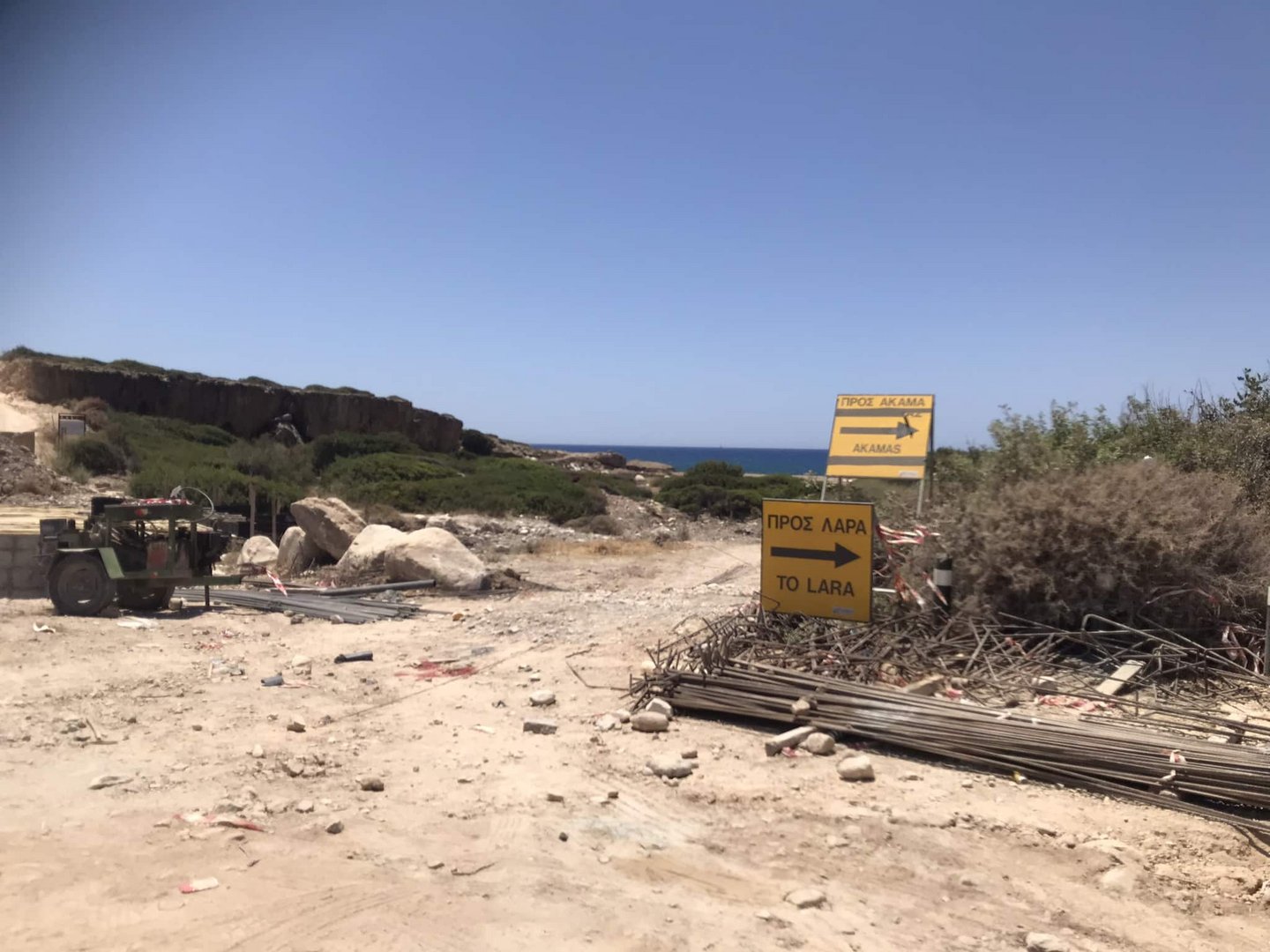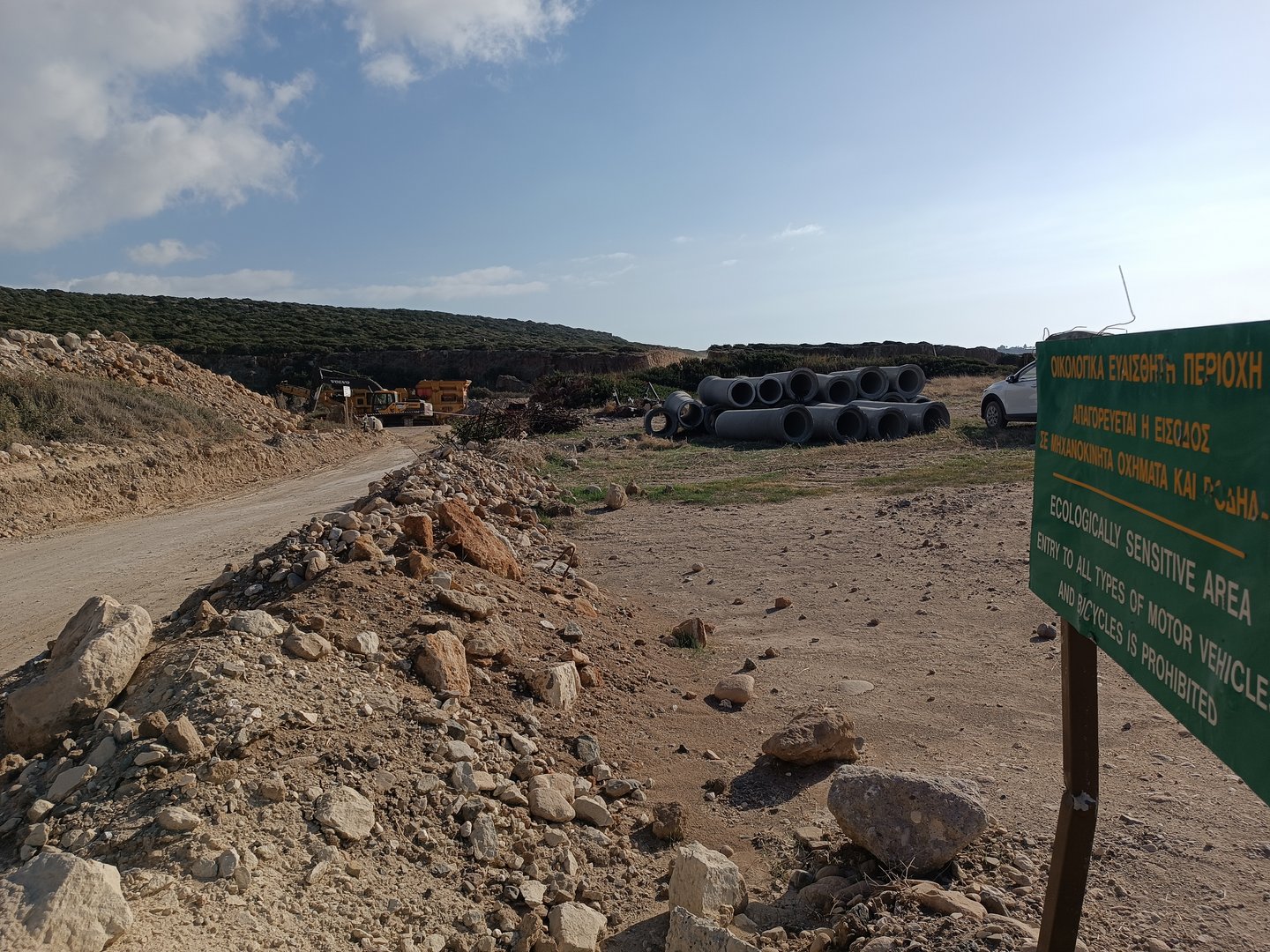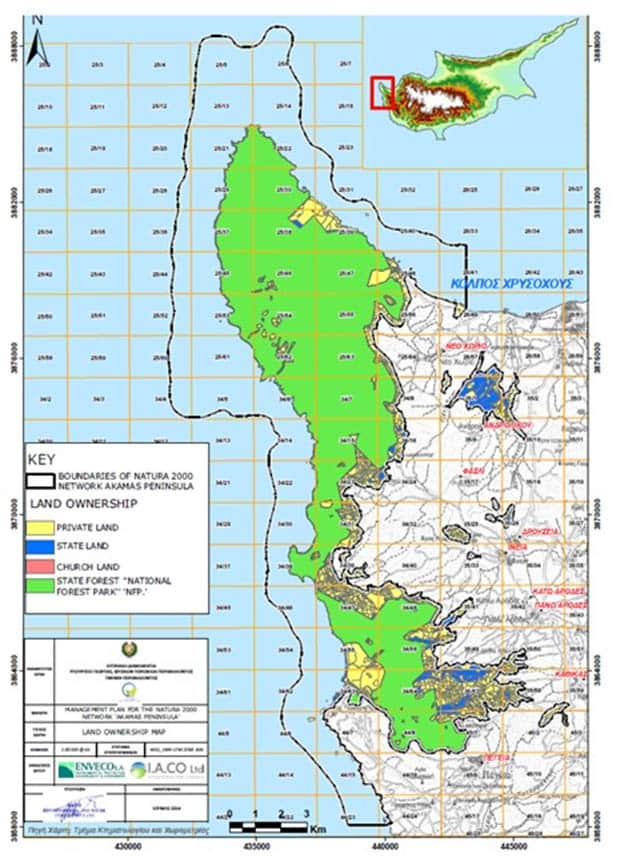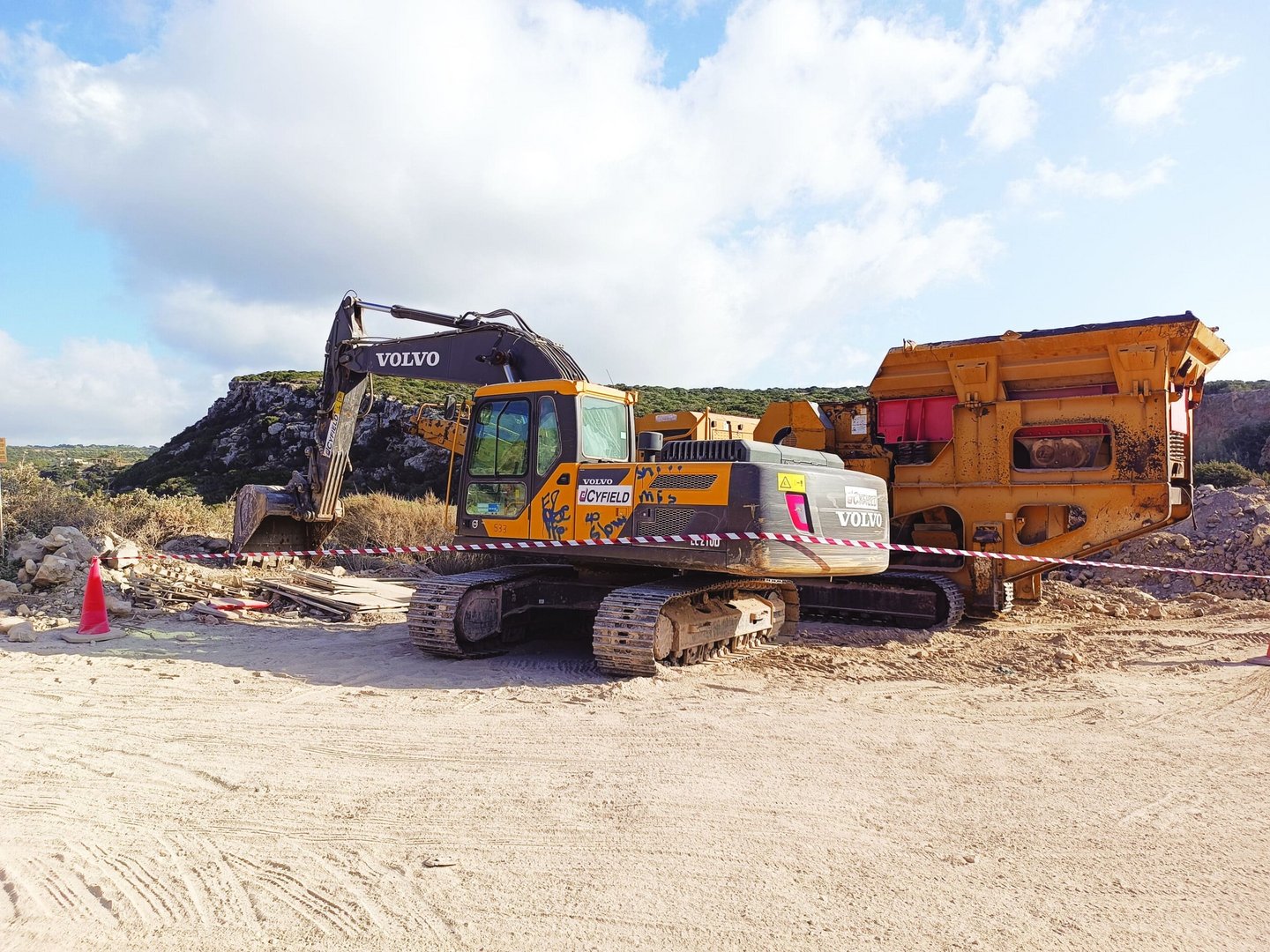Environmental groups call for roadworks to halt saying plan is being violated
After 38 years of struggle to protect Akamas the prospects of genuine conservation of the peninsula – the only remaining untouched landmass under the Republic’s control – is still far from a given, environmentalists claim.
Despite the agreed upon implementation of the National Akamas Forest Plan, officially underway since September 1, environmental groups have raised renewed concern over works currently underway under the auspices of the Forestry Department, which is phasing in the first part of the plan – the improvement of forestry roads for use by private vehicles.
Terra Cypria, BirdLife, Friends of Akamas, the Greens and Akel have all recently asked for an immediate suspension of the roadworks, over suspicions that they are being executed in violation of precisely stipulated, non-negotiable conditions attached to the national plan, stemming from a special study commissioned by the agriculture ministry.
Those raising the alarm have asked for the environment department to conduct an onsite review of the situation prior to allowing any further works, and Akel has vowed to resurrect the topic, as well as that of stalled compensatory measures for landowners, in the parliamentary committee.
Speaking to Cyprus Mail, deputy director at the Environment Department Elena Stylianopoulou said the department had received the complaints and that they were being investigated.
“We have received the information and in fact we have already conducted four to five onsite visits, along with the game service and the forestry department. We are evaluating the situation,” she said. An opinion will most likely be issued within the next two weeks, the official stated.
Environmental NGO Terra Cypria is amongst those which has issued an SOS presenting details of alleged violations with photographic evidence. These include a cluster of illegal structures continuing to operate along the north end of the protected Lara beach, removal of protective bollards, indiscriminate dumping of construction waste and materials, and the existing dirt roads widened beyond limits stipulated in the plan’s conditions.
The NGO documented such roads, up to 12 metres wide in spots, in Aspros Potamos, Toxeftra, above Lara beach and at its turnaround, claiming they were double or triple their officially permitted widths of 4 to 5.5 metres.
“What is worrying is that these roads were, already from the outset, so poorly conceived,” vice president of the Greens and head of the Friends of Akamas movement, Kyriakos Tsimillis said.
The roads are designed for private vehicles, an aspect of the plan with which the Greens fundamentally disagree, so their construction carried out in seeming violation of set criteria has rekindled a distrust of the state’s ultimate intentions.
“It is really inconceivable to have provision for up to 660 parking spaces in a national park!” Tsimillis vehemently declared. “It’s hard not to see all of this – the number of entrances, the intent to put so-called refreshment areas within park boundaries, the ‘improvement’ of footpaths…as a slippery slope,” the Greens rep said.
The Greens’ vision for Akamas had been on quite a different trajectory. They had envisioned amenities to be clustered in the villages surrounding the area, so that local inhabitants could benefit from tourism while leaving the actual national park as close to untouched as possible.

A new retaining wall and widened road as works have begun from the Paphos end of the Akamas towards Lara Bay
As for the idea of “tourist farms” floated about, the concept had been to set up work-away style farms, even incentivising young farmers, to sustainably produce local foods and artisanal products of high value – again in an effort to economically boost surrounding communities and enable a more equitable share of the tourist-pie.
However, proponents are now worried that this concept will be eroded and that the so-called “farms” will morph into restaurants and catering venues, with a few goats and banana trees thrown in for good measure.
Other sticking points with the plan have to do with continued permission of hunters’ use and the ensuing damage caused by pick-up trucks to dirt roads, nature paths and the ecosystem, as well the ludicrous access allowed for quad bikes.
Accidents resulting from such vehicles, utterly unsuitable for national parks in the first place, have already been used to drum up support for “improved” roads, which translates to bigger and better with more asphalt, continuing the destructive cycle.
In April, when a tender for the roadworks temporarily stalled over the fact that the contractor’s estimate came to €9 million, exceeding the earmarked budget by €3 million, environmentalists held a glimmer of hope that an opportunity had opened up to convince the state that such extended roadworks were unnecessary, and that the €6 million budget would suffice.
“But no one listened,” Tsimillas said.
Director of the Forestry Department Charalambos Alexandrou, for his part, told the Cyprus Mail in no uncertain terms that his department was being maligned in the media, insisting that the department was carrying out its duties faithfully and had multiple designated supervisors onsite, including an inspector, a contract coordinator, an engineer and surveyors.
“We have a zero-tolerance policy for infringements,” he said. “I categorically deny that what we are being accused of is happening. Why would a contracting company even want to carry out works beyond its scope?” Alexandrou charged.
The final roads once completed would be in accordance with the plan’s agreed-upon terms, the forestry director insisted.
Any illegal installations remaining in the area are not under the authority of the forestry department, he explained, but fall under the planning department’s remit.
“There are no unlawful installations whatsoever on national forest land that we have not dealt with. Since 2016, we have dealt with 30 incidences and all have been either demolished or are under legal proceedings,” Alexandrou said.
His remarks point to the fact that remaining illegal shacks or refreshment stalls are likely on private land and thus under the auspices of the planning department.
The whole project has been bogged down from the start by seriously convoluted land-use and ownership arrangements. Land included in the designated park zone spans four categories: private, state, church, and national forest land. The latter takes up the bulk of the area with troublesome enclaves of the other kinds, just compensation for which is a source of bitterness among locals, and yet to be determined.
The perpetual conflict seems to centre on mistrust of the environmentalists’ vision that a fair, equitable and sustainable development of the park and its surrounds is actually possible, and of the state’s ability to bridge the gap between promises and outcomes.
A typical disagreement is over the fate of traditional shepherd’s shacks dotted throughout the state park. While environmentalists argue there’s no need to develop these since 81 per cent of residential land owned by the communities is as yet unutilised, locals argue that the huts known as stiadia are part of their heritage going back far before the declaration of Natura 2000, and theirs do with as they wish.
One wonders what hope there might be in this drawn-out saga of seemingly irreconcilable visions. Paphos Greens rep Andreas Evlavis had this to say,
“We fought for 15 years, to stop the British doing military shooting practice in Akamas [the area was used as a firing range for decades]. It was a very difficult fight, but we managed it. Now, at the very end, when we’ve come so close…wouldn’t it be tragic to fail to protect it for our next generation? Wouldn’t it be tragic if Akamas and the surrounding villages turn into just another Ayia Napa, another Limassol, another Peyia?”










Click here to change your cookie preferences